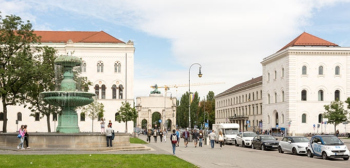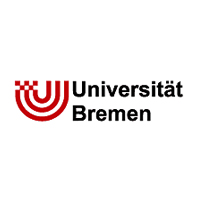- #=530 QS Global World Ranking
- PublicStatus
- Very HighResearch Output
- 18,335Total Students
- 1,221Faculty
- 2,983Int'l Students
QS Global World Ranking
The University’s position in the current QS World University Rankings.
The University’s position in the current QS World University Rankings.
Status
Whether the University is funded by the government of that country or state, or funded by private donations.
Whether the University is funded by the government of that country or state, or funded by private donations.
Research Output
The research intensity of the University, based on the number of papers output relative to the University’s size.
The research intensity of the University, based on the number of papers output relative to the University’s size.
Total Students
The number of full time equivalent students enrolled at the University.
The number of full time equivalent students enrolled at the University.
Faculty
The number of full time equivalent teaching staff employed by the University.
The number of full time equivalent teaching staff employed by the University.
Int'l Students
The number of full time equivalent international students enrolled at the University.
The number of full time equivalent international students enrolled at the University.
Universität Bremen
About
Read more
Read less
With 290 professors and 19,000 students, the University of Bremen offers a large spectrum of subjects; 100 different study programs organized in 30 academic disciplines. The University of Bremen was founded in 1971. In the course of its relatively short history it has developed into the science center of North West Germany. When it was founded it broke new ground in many ways, earning the label “Bremen Model”. Some of these breakthroughs have now become standard features of modern universities. For instance: interdisciplinarity, research-based learning in projects, and social commitment.STRENGTH IN RESEARCHFor many years now, the University of Bremen has been among the top league of German universities in the area of research. Since June 2012, the University of Bremen is entitled ‘University of Excellence’, given its success in the Excellence Initiative, a competition launched by the German government to promote top-level university research. Research conducted at the University of Bremen is interdisciplinary. In other words: Bremen research transcends the borders of traditional disciplines and is embedded within six research concentrations, also known as high-profile areas: Ocean and Climate Research, Materials Science, Information-Cognition-Communication, Social Sciences, Health Science, and Logistics.The University of Bremen numbers among the most successful universities in Germany with regard to acquiring third-party funding for research projects. In the last years, external funding consistently accounted for one third of the University’s entire budget. FOCUS ON TEACHING EXCELLENCEEver since it was founded, the University of Bremen has purposefully pursued a policy of creating close links between its teaching and research activities. A good example is its approach to studying in projects, which fosters elements of independent research-based learning oriented to societal issues. Especially characteristic for its teaching profile is the University’s focus on research-based learning at an early stage of studies, the anchoring of a comprehensive program of General Studies in the curriculum, and the supportive integration of e-learning components. OPEN FOR NEW IDEASThe young University of Bremen is always open to new developments. For example, within the context of support for young researchers, in 2001 it was the very first university in Germany to introduce a so-called tenure track for "junior professors" (assistant professors), which became known as the “Bremen Perspective”. Junior professors are sure in the knowledge that after six years they will be shortlisted with other external candidates for a full professorship. As a complementary measure to the junior professorships, the University of Bremen has strengthened the academic position of independent leaders of junior research groups. In 2010, the university established a Graduate Center (ProUB – Promotionszentrum Universität Bremen) which provides a comprehensive catalogue of support services to all doctoral students and their supervisors, as well as to the university’s various doctoral programs. Moreover, the University of Bremen is widely known for its diversity management and gender mainstreaming policies. It has established high internal standards of equal opportunity, and according to the German Research Foundation it ranks among the most successful universities.SCIENCE AND RESEARCH IN THE INTEREST OF SOCIETYResearch and finding solutions to pressing social issues has a long tradition at the University of Bremen. This encompasses both fundamental as well as applied research. The University meets its commitment to education and research in the interest of society by entering into close cooperation with public institutions and enterprise, as well as by offering a broad spectrum of services to the community.
About
With 290 professors and 19,000 students, the University of Bremen offers a large spectrum of subjects; 100 different study programs organized in 30 academic disciplines. The University of Bremen was founded in 1971. In the course of its relatively short history it has developed into the science center of North West Germany. When it was founded it broke new ground in many ways, earning the label “Bremen Model”. Some of these breakthroughs have now become standard features of modern universities. For instance: interdisciplinarity, research-based learning in projects, and social commitment.STRENGTH IN RESEARCHFor many years now, the University of Bremen has been among the top league of German universities in the area of research. Since June 2012, the University of Bremen is entitled ‘University of Excellence’, given its success in the Excellence Initiative, a competition launched by the German government to promote top-level university research. Research conducted at the University of Bremen is interdisciplinary. In other words: Bremen research transcends the borders of traditional disciplines and is embedded within six research concentrations, also known as high-profile areas: Ocean and Climate Research, Materials Science, Information-Cognition-Communication, Social Sciences, Health Science, and Logistics.The University of Bremen numbers among the most successful universities in Germany with regard to acquiring third-party funding for research projects. In the last years, external funding consistently accounted for one third of the University’s entire budget. FOCUS ON TEACHING EXCELLENCEEver since it was founded, the University of Bremen has purposefully pursued a policy of creating close links between its teaching and research activities. A good example is its approach to studying in projects, which fosters elements of independent research-based learning oriented to societal issues. Especially characteristic for its teaching profile is the University’s focus on research-based learning at an early stage of studies, the anchoring of a comprehensive program of General Studies in the curriculum, and the supportive integration of e-learning components. OPEN FOR NEW IDEASThe young University of Bremen is always open to new developments. For example, within the context of support for young researchers, in 2001 it was the very first university in Germany to introduce a so-called tenure track for "junior professors" (assistant professors), which became known as the “Bremen Perspective”. Junior professors are sure in the knowledge that after six years they will be shortlisted with other external candidates for a full professorship. As a complementary measure to the junior professorships, the University of Bremen has strengthened the academic position of independent leaders of junior research groups. In 2010, the university established a Graduate Center (ProUB – Promotionszentrum Universität Bremen) which provides a comprehensive catalogue of support services to all doctoral students and their supervisors, as well as to the university’s various doctoral programs. Moreover, the University of Bremen is widely known for its diversity management and gender mainstreaming policies. It has established high internal standards of equal opportunity, and according to the German Research Foundation it ranks among the most successful universities.SCIENCE AND RESEARCH IN THE INTEREST OF SOCIETYResearch and finding solutions to pressing social issues has a long tradition at the University of Bremen. This encompasses both fundamental as well as applied research. The University meets its commitment to education and research in the interest of society by entering into close cooperation with public institutions and enterprise, as well as by offering a broad spectrum of services to the community.
University highlights
- 2012#=346
- 2014#=370
- 2015#=348
- 2016#=351
- 2017#441-450
- 2018#481-490
- 2019#511-520
- 2020#521-530
- 2021#541-550
- 2022#571-580
- 2023#601-650
- 2024#=514
- 2025#=592
- 2026#=530
QS Stars is a rating system that helps you select the right university based on your
interests. It provides a detailed look at an institution, identifying which universities rate highest in
the
specific topics that matter to you, like facilities, graduate employability, social responsibility,
inclusiveness, and more.
Campus locations
Bibliothekstraße 1, Bremen, DE,
Bibliothekstraße 1 , Bremen , Germany , 28359
Similar Universities
Ludwig-Maximilians-Universität München
Geschwister-Scholl Platz 1, München
63 QS World University RankingsKarlshochschule International University
Karlsstr. 36-38, Karlsruhe
Frankfurt School of Finance & Management
Adickesallee 32-34, 60322 Frankfurt am Main, Frankfurt am Main
ESCP Business School - Berlin
Heubnerweg 8-10, Berlin
Macromedia University of Applied Sciences
Macromedia University of Applied Sciences, Berlin
Lancaster University Leipzig
The Post, Augustusplatz 1-4, Leipzig
Macromedia University of Applied Sciences
Mehringdamm 33, Berlin
Related content

QS Top 50 Under 50 2020
By
Craig
OCallaghan
Updated
4.9k
4

Top Universities in Germany…
By
Sabrina
Collier
Updated
772
0

Top Universities in Germany…
By
Sabrina
Collier
Updated
788
0

Top Universities in Germany…
By
Sabrina
Collier
Updated
479
0

Top Universities in Germany…
By
Sabrina
Collier
Updated
1.6k
7

Top Universities in Germany…
By
Sabrina
Collier
Updated
345
0

Top Universities in Germany…
By
Sabrina
Collier
Updated
365
0

Top Universities in Germany…
By
Laura
Bridgestock
Updated
236
0

Top Universities in Germany…
By
Laura
T
Updated
608
0

Top Universities in Germany…
By
Jane
Playdon
Updated
541
18
Test preparations
Featured University


Sponsored
438
QS World University Rankings
-
10 UG & 47 PGTotal courses
-
Private for ProfitStatus
-
HighResearch output
Universität Bremen
EN

















